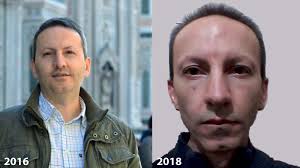CHRI – The Iranian government’s threat to execute Swedish scientist Ahmadreza Djalali later this month is aimed at thwarting the trial in Sweden against Iranian official Hamid Nouri, who is accused of war crimes.
“The Iranian government is engaging in blatant extortion,” said Hadi Ghaemi, executive director of the Center for Human Rights in Iran (CHRI). “This thuggish behavior is an intimidation tactic aimed at disrupting a fair trial against a man accused of heinous human rights violations.”
“Iranian officials are used to committing rights violations with impunity in their country and now they’re trying to force a foreign, independent court to do their bidding by threatening to sacrifice the life of a hostage,” he added.
“The Iranian government has been collecting dual nationals to use in its arsenal of human bargaining chips for years and is now threatening to kill one of them to secure impunity for one of its officials,” said Ghaemi.
“The international community should loudly condemn this criminal behavior,” he said.
Djalali Held as Bargaining Chip on Fabricated Charges
Djalali is an Iranian-born Swedish physician and researcher specializing in disaster medicine. He was arrested by Intelligence Ministry agents in Tehran in 2016 after traveling there from his home in Stockholm on invite by the University of Tehran.
For months he was held in complete isolation from everyone including his lawyer in solitary confinement, where he was forced to make incriminating statements against himself on camera. The Iranian government later aired edited versions of him making the incriminating statements on national state TV.
In a letter from prison, Djalali stated that the Iranian Intelligence Ministry had pressured him to engage in espionage and that after he refused, he was forced to make false confessions on camera without access to a lawyer.
He was then tried over espionage charges in a secretive trial in Tehran that violated internationally upheld standards of due process. He was sentenced to death in 2017.
The UN and international rights groups, as well as more than one hundred Nobel laureates have loudly condemned the Iranian government’s wrongful detainment of Djalali and have called for his release.
Iranian Media Reported Djalali’s Imminent Execution Amid Final Stage of Nouri’s Trial
Iranian state media reported Djalali’s imminent execution (scheduled for May 21) on the same day that the trial against Nouri (also spelled Noury) wrapped up: May 4, 2022. The outcome of Nouri’s trial is expected to be announced on July 14.
“The timing of the death sentence announcement against Djalali is more proof that he is being held as a bargaining chip to gain Nouri’s release or a reduction of the charges,” said Ghaemi.
Djalali’s health has been waning in Evin prison over the years, according to his wife Vida Mehrannia.
“Ahmadreza has been very sick these past six years,” she told CHRI. “He has lost 25 kg, has pre-cancer gastritis, anemia, stones in his gall bladder, skin disorders, mild paralysis of his foot, mouth ulcers, and has lost teeth.”
“This all started at the jail and after his hunger strikes,” she added. “I hope the EU doesn’t want to sacrifice my husband.”
Key Witness in Nouri Trial: Conviction Could Lead to More Prosecutions of Iranian Officials
The trial of Nouri, 60, who was detained in Sweden in 2019, began in August 2021.
According to the indictment brought by Swedish public prosecutors, he is accused of “intentionally killing, together with other perpetrators, a large number of prisoners who sympathized with various left-wing groups and who were regarded as apostates” as well as “crimes against humanity.”
The historic trial against Nouri, in which dozens of witnesses testified, is the first time that one of the worst crimes committed in the Islamic Republic of Iran has been thoroughly examined and exposed in a court of law.
Iranian President Ebrahim Raisi is also accused of participating in the mass executions of prisoners in Iran in the 1980s.
“As for Raisi, we believe that after Nouri has been sentenced, the pursuit of others responsible for the 1988 massacre will commence,” said Iraj Mesdaghi, a former political prisoner and key witness, in an interview with CHRI.
Djalali is among at least 15 dual nationals and one foreign national detained in Iran without due process.
 Shabtabnews In this dark night, I have lost my way – Arise from a corner, oh you the star of guidance.
Shabtabnews In this dark night, I have lost my way – Arise from a corner, oh you the star of guidance.



